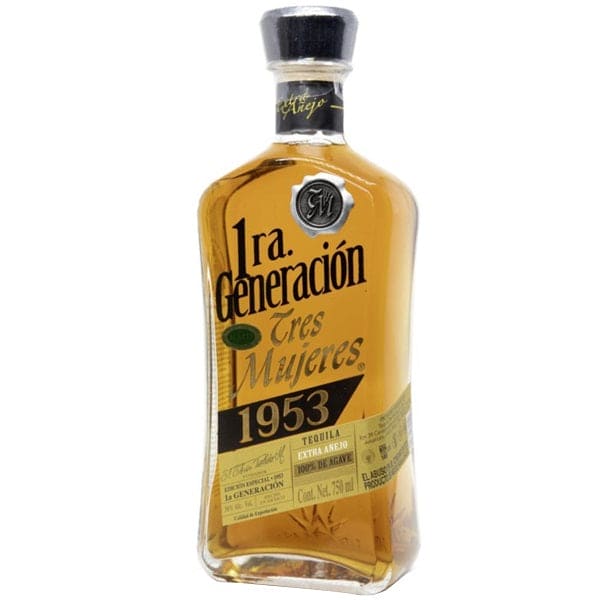
Tres Mujeres Extra Anejo Primera Generacion Tequila
Tres Mujeres Extra Anejo Primera Generacion Tequila
Experience the essence of tradition and craftsmanship with Tres Mujeres Extra Anejo Primera Generacion Tequila. This exceptional tequila stands as a testament to the artistry that has been passed down through three generations of women, making it a pioneering product in the extra anejo category.
Key Features:
- Premium Quality: Crafted with meticulous attention to detail, ensuring a refined flavor profile that tequila connoisseurs will appreciate.
- Extended Aging: Aged for an extended period, this tequila develops a rich complexity that is truly one-of-a-kind.
- Complex Flavor Notes: Delight in the intricate layers of caramel, vanilla, toasted oak, and spices that dance on your palate.
- Smooth Texture: The velvety texture enhances the drinking experience, making it perfect for sipping or savoring on special occasions.
Tres Mujeres Extra Anejo Primera Generacion Tequila is not just a drink; it’s a celebration of legacy and excellence. Whether you are an aficionado or new to the world of tequila, this extraordinary spirit will elevate any gathering or quiet evening at home. Embrace the spirit of generations with every sip.

Explore a World of Spirits and Liquor through our Comprehensive FAQ Section.
Discover a World of Spirits and Liquor in our Helpful FAQ Section.
Types of Spirits
- Whiskey: Made from fermented grain mash and aged in wooden casks.
- Vodka: Typically distilled from grains or potatoes and known for its clear, neutral flavor.
- Rum: Produced from sugarcane byproducts like molasses or sugarcane juice.
- Tequila: Made from the blue agave plant, primarily in the area surrounding Tequila, Mexico.
- Gin: Distilled with botanicals, primarily juniper berries, giving it a distinctive flavor.
Production Process
- Fermentation: The process where yeast converts sugars into alcohol.
- Distillation: Separating alcohol from the fermented mixture to increase its concentration.
- Aging: Storing spirits in barrels to develop flavors over time.
Tasting and Pairing
- Tasting Notes: Learn to identify different aromas, flavors, and textures.
- Food Pairings: Discover which spirits complement various dishes, enhancing the dining experience.
Cocktails and Mixology
- Classic Cocktails: Recipes and techniques for making popular drinks like the Old Fashioned, Martini, and Mojito.
- Mixology Tips: How to balance flavors and create your own cocktail recipes.
History and Culture
Origins: The historical background of different spirits.
Cultural Significance: How spirits are enjoyed and celebrated around the world.

